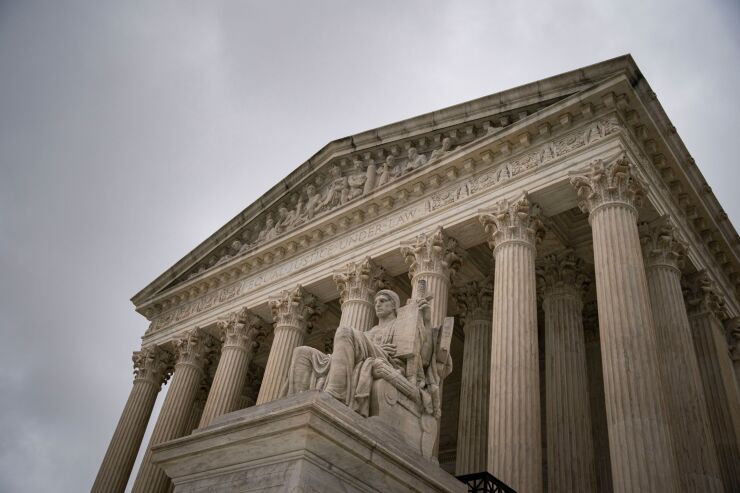
I've mentioned this
When I found my way into banking policy, one of the most noticeable differences was how infrequently banks sued their regulators — as in, it
Environmental rules and banking rules live on extreme ends of the litigation spectrum, but banking lawyers seem to be taking some cues from their environmental lawyer colleagues lately. The industry has sued regulators over the final
Judicial review is, of course, a right that citizens and companies have and that has an important function in our political system. It is — or ought to be — a check on executive power to ensure that it is used responsibly and constructively. Former Federal Deposit Insurance Corp. Chair Jelena McWilliams made that point at the American Bankers Association conference in Washington this morning, saying that when "the internal checks and balances fail [and] you produce a rulemaking that's [not] reasonable, you have only two outcomes left: judicial and congressional. And God help you if Congress carves out your future."
Former Vice Chair for Supervision Randal Quarles, speaking at the same conference, added that "suing the regulators is not a declaration of war. In my view, it's consulting the dictionary on a disputed scrabble play."
Basel III endgame is a prime example of the kind of rule that is begging for a lawsuit, both in substance and process, and in that case I can see how a more clear and present threat of litigation might have motivated regulators to take their time and develop a more sound policy. But challenging rules in court — particularly if you're making constitutional arguments along the way — is more multidimensional than questioning whether "SNRGDUF" is a word.
As an illustrative example, look at environmental policy. The political lens of environmental policy, in the broadest strokes, is that Democratic administrations tend to issue rules that are expensive for industries to comply with, while Republican administrations do not. Rules made by Democrats get litigated by industry and rules issued by Republican administrations get sued by environmental organizations. The outcomes of those many, many lawsuits is that there is a whipsaw effect whenever administrations shift from one party to another, and rules that theoretically could have been finalized years ago remain not only unfinished but hemmed in by
An added complicating factor in all of this is that today's judicial victory can also be tomorrow's precedential defeat. The most cited case in administrative law is
Banking as an industry thrives on, and to some extent requires, predictability. Litigation is a tool that is appropriate and necessary to challenge rules that lead to impossible outcomes, make gross errors or cut corners. But a new normal of having banks sue regulators when they issue rules they don't like or don't want to pay for tends not to make the underlying problems that necessitated the rule go away. They just come back stronger — and they're bringing their own lawyers this time.






